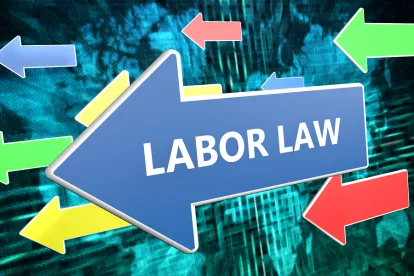My colleague, Jason Rubinstein, recently wrote a piece highlighting potential impacts the coronavirus pandemic might have on various commercial lines of insurance. Though too early to know the full extent of resulting lawsuits, it is only a matter of time before employers start to see claims by current or former employees stemming from issues related to the coronavirus pandemic. With the threat of such claims so high, it is important for employers to know what coverage their employment practices liability insurance (“EPLI”) might provide, especially as EPLI often contains vary specific exclusions eliminating coverage for certain claims faced by employers.
Below are some examples of claims that employers may see in the coming months and a brief analysis of what EPLI coverage may exist to respond to them:
OSH Act Claims – the Occupational Safety and Health Act (“OSH Act”) contains a “general duty” clause requiring employers to furnish a workplace that is free from recognized hazards that are causing (or likely to cause) death or serious physical harm. Separately, the OSH Act prohibits employers from retaliating against employees who have filed a complaint or otherwise exercised rights afforded by the OSH Act.
It is easy to see how OSH Act claims related to the coronavirus could arise. This is especially the case with employees at worksites that are reasonably likely to be exposed to the virus (e.g., healthcare providers, transportation workers, hospitality industry employees, etc.). It is similarly foreseeable that retaliation claims could arise out of situations where employees refuse to work because they believe they are at risk of contracting the virus as a result of performing their job functions.
EPLI policies often exclude coverage for claims arising out of OSH Act’s “general duty” clause but, in the event of such a claim, specific policy language should be reviewed. However, even if the principal substantive claims are excluded, many EPLI policies provide coverage for a resulting retaliation claim under the policy’s definition of “wrongful act.” Employers facing such claims must look closely at the language in their policies in relation to the allegations of the claim to determine what coverage exists.
FMLA Claims – Among other things, the Family and Medical Leave Act (“FMLA”) provides covered employees with up to 12 weeks of unpaid, job-protected leave in a designated 12-month period for specified family and medical reasons. Illness associated with the coronavirus is potentially among these reasons. In addition to substantive claims related to the provision of leave, like the OSH Act, the FMLA prohibits employers from retaliating against employees who have exercised rights afforded by the statute.
EPLI policies vary greatly as to whether they provide coverage for substantive FMLA claims (i.e., non-retaliation claims). Some policies provide such coverage while others do not. Again, it is important for employers facing such claims to examine their policies to determine what coverage exists. In contrast, there is typically not as much variance with respect to FMLA retaliation claims which are typically covered by EPLI policies.
FLSA Claims – the Fair Labor Standards Act (“FLSA”) sets requirements, among other things, regarding the classification of workers as exempt or non-exempt and the payment of such workers (i.e., minimum wage, entitlement to overtime). With employees being required to work remotely, stagger hours (or work different schedules), or self-quarantine, the likelihood of eventual FLSA claims related to the coronavirus is high. Coverage for such “wage and hour” claims varies greatly among EPLI policies. Historically, EPLI policies contained exclusions for “wage and hour” claims. However, more recently, coverage for “wage and hour” claims have become more frequent. Sometimes this is the result of changing policy language, but other times the result of courts treating the exclusions more narrowly. In other cases, EPLI policies may provide sublimits for “wage and hour” claims or may provide for reimbursement of defense costs only. When faced with “wage and hour” claims under the FLSA or similar state statutes, employers should examine the language in their EPLI policies and consult with insurance attorneys to determine whether potential coverage exists.
Wrongful Termination Claims – finally, numerous state and federal statutes prohibit employers from terminating employers for certain prescribed reasons. A common example of these statutes is anti-discrimination statutes that prohibit employers from taking adverse employment actions against an employee that is based on that employee’s membership in a protected class (e.g., race, gender, disability status). Such claims could arise out of any number of fact patterns. For instance, an Asian-American employee might argue that their termination stems from prejudices against the coronavirus’s origins in China. Separately, an employee with coronavirus might make arguments that their termination was discriminatorily based on a disability or that they were regarded as having a disability (though whether the coronavirus qualifies as a “disability” under the Americans with Disabilities Act is a topic for another article).
EPLI policies almost uniformly provide coverage for such wrongful termination claims. Significantly, as with other claims, even if the claims are entirely baseless, aside from providing coverage for indemnification, EPLI policies typically provide coverage for defense costs, which in many cases can be more valuable than the potential indemnity.
Conclusion
The above is just a sampling of the variety of claims an employer might face in the coming months—and years—as a result of the coronavirus. Employers should examine their policies (both EPLI and other forms of coverage) to understand what coverage exists and is accessible in the event they face claims. Finally, as claims stemming from the coronavirus are likely to come in the future, employers should consider the issues raised above when renewing policies, or considering whether to purchase new policies.



 />i
/>i

